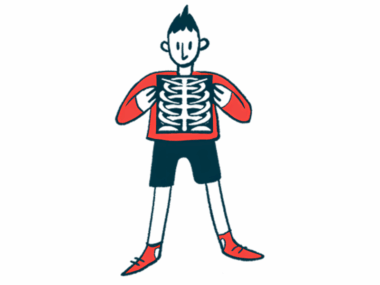Parkinson’s provides an education outside the classroom
I've become a good student of my husband's early-onset disease
Written by |

When I think about the word “learning,” it conjures up vivid memories of my school days. I can picture myself riding a bright yellow school bus and covering my textbooks with folded-up brown paper bags. I often daydreamed about how great life would be when I was finally done with schooling and my education.
As a middle-aged adult, I now recognize that learning is not confined to the lecture rooms of a university or the walls of my high school. Although schooling provides knowledge that prepares us for our future, the pursuit of learning never ends. Most of what we learn in life is completely unrelated to what we learn in school.
When my husband, Arman, was diagnosed with early-onset Parkinson’s disease, a million-plus questions ran through my 38-year-old mind. I had no idea how this diagnosis would alter the course of our lives. I quickly recognized the need to prepare for a role for which I had no formal training or education.
My self-directed learning
Because of the many unknowns and questions that I had spiraling around this complicated disease, I knew it was time to learn. I began studying and researching everything I could about early-onset Parkinson’s disease. I became a self-taught expert on medications, therapies, potential therapies, progression, surgeries, specialists, symptoms, clinical trials, caregiving, vitamins, and everything under the sun that I could find information on.
My head was exploding with ideas and plans as I educated myself on how to help Arman. He was at a particularly early stage of Parkinson’s when I learned that bicycling was one of the best ways to slow the progression of the disease. We immediately enrolled him in a cycling clinical trial and purchased a stationary bicycle for our home. To this day, 15 years in, cycling is an integral part of his exercise regimen.
At Arman’s medical appointments, I became that person who likely annoys everyone by asking an abundant number of questions. I was eager to learn everything that I could from the collaborative efforts of his specialists.
Although our movement disorder specialists have been a fantastic resource, I’ve probably learned the most valuable information about Parkinson’s from my caregiver support group. Each member has a unique story to share, and we not only lean on each other, but also learn from each other. The knowledge I’ve gained has helped me in various ways.
Parkinson’s has been a part of my life for over 15 years now. Although that seems like a long time, long enough that I certainly should know all there is to know about this disease and caregiving, that’s far from the truth. Every day, I’m learning more and more about Parkinson’s disease. As soon as I think I’m an expert, things change, and I realize I’m not.
Life experiences are probably the greatest teacher that we’ll encounter. Successes, failures, experiences, and challenges allow us to learn lessons that cannot be taught in a classroom or read in a book.
Note: Parkinson’s News Today is strictly a news and information website about the disease. It does not provide medical advice, diagnosis, or treatment. This content is not intended to be a substitute for professional medical advice, diagnosis, or treatment. Always seek the advice of your physician or another qualified health provider with any questions you may have regarding a medical condition. Never disregard professional medical advice or delay in seeking it because of something you have read on this website. The opinions expressed in this column are not those of Parkinson’s News Today or its parent company, Bionews, and are intended to spark discussion about issues pertaining to Parkinson’s disease.




Steve Thone
Jamie. Thanks for your story. I can relate with the self education, I read and follow as much as I can to help me understand. My situation is somewhat different, my wife was diagnosed with early onset Parkinson’s back in April 2023 and we’re older, she is now 68, diagnosed at 66. I’m younger at 64 now. I agree with you about exercise and biking. She also uses a balance ball and balance pad which have helped greatly. I must say her main issue is anxiety which we have tried non prescription methods such as CBD and even cannabis which is legal in New York, but to no real benefit. Keeping her motivated and happy is my main role which is sometimes rough. So always looking for the bright side!
Jamie Askari
Hi Steve,
Thanks for your comments, I am glad that you could relate! Keep looking on the bright side, and thanks for reading!
~Jamie
Jamie Askari
Hi Steve,
It's great to hear about biking and exercise; they're so important! I will look into the balance pad; we do have the ball. I also do my best to keep him motivated. Keep your head up and look towards the bright side!
Best,
Jamie
Carol Wroblewski
Thank your for your information on Parkinson's . My husband started with Essential Tremors for about 8 years before he was fully diagnosed with Parkinsons by his Neurologist. His symptoms became more severe over the years to the point he no longer was able to use his right hand to eat or do anything ( he is right hand dominant ) along with the tremors he began to have severe anxiety, which he never had. He preferred to use a more natural product than the so called anti-anxiety meds his Neurologist prescribed. We used Ashwaganda . It helped but only temporarily .
I did my research back then and found there was a procedure not yeat available in my State Called MRI Guided Focused Ultrsaound. The treatment used no anesthesia, no incisions. It was a miracle. Performed at Hackensack University Hospital.
Jamie Askari
Hi Carol,
It's fantastic to hear how well the focused ultrasound worked for your husband. I hope that other readers experience the same miracle! Thank you for sharing this and reading!
Best,
Jamie
Jeffrey Weld
I have my first appointment with a neurologist this week. It is always good to hear from people that provide personal insights and a positive attitude. I wish you and Arman the best of luck. Are there any resources you recommend. Can you address any issues you had to address shortly after diagnoses?
Jamie Askari
Hi Jeffrey! Thank you for your kind words.
Parkinson's New Today is my favorite resource for up-to-date information on all things PD. After diagnosis, we were hyper-focused on helping our three young children adjust to the early onset PD diagnosis. Because of this, we didn't have much time to focus on anything else.
My best suggestion is to give yourself time and grace to adjust. It is undoubtedly a process of acceptance. Even after 15 years, some days, I still struggle with it.
Best of luck,
Jamie